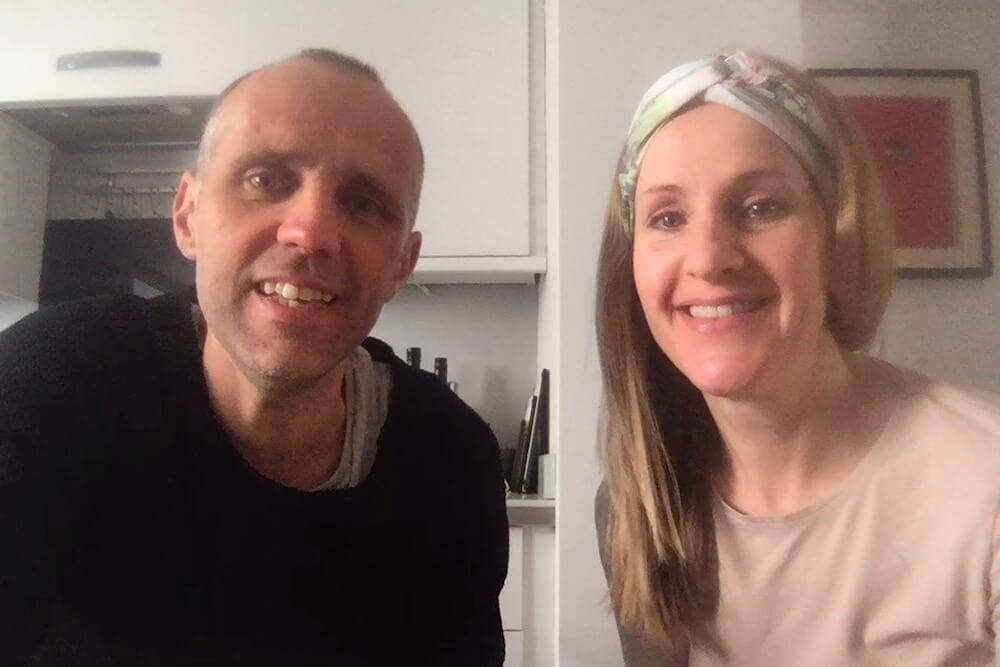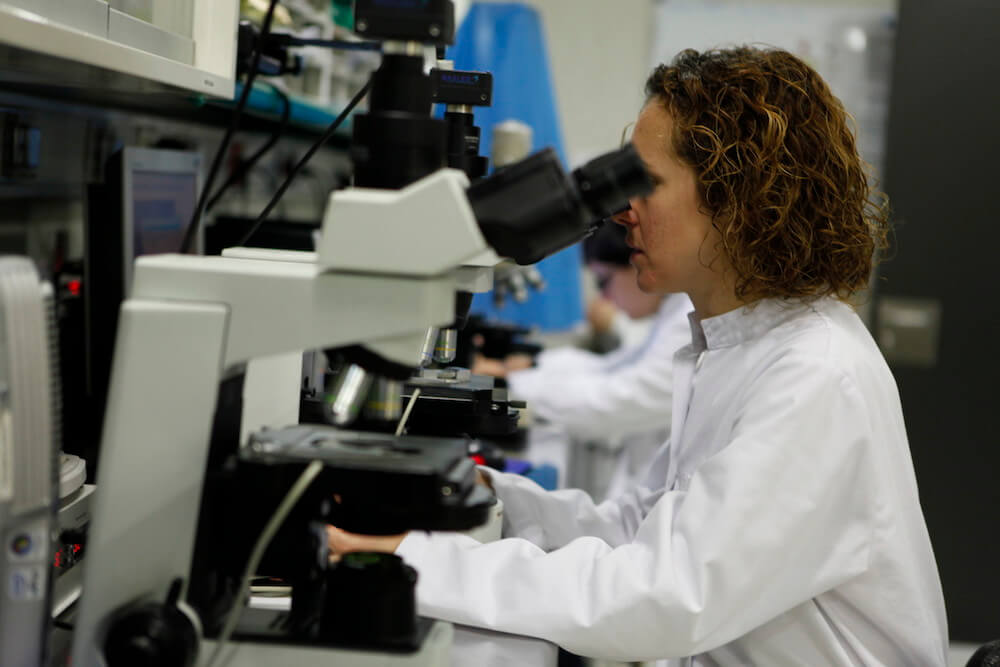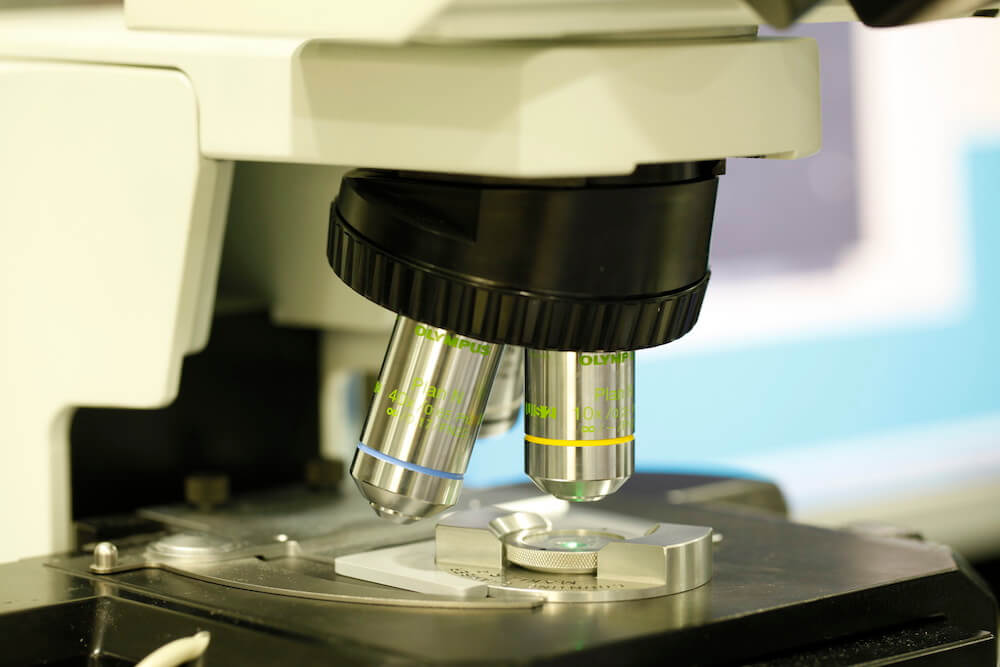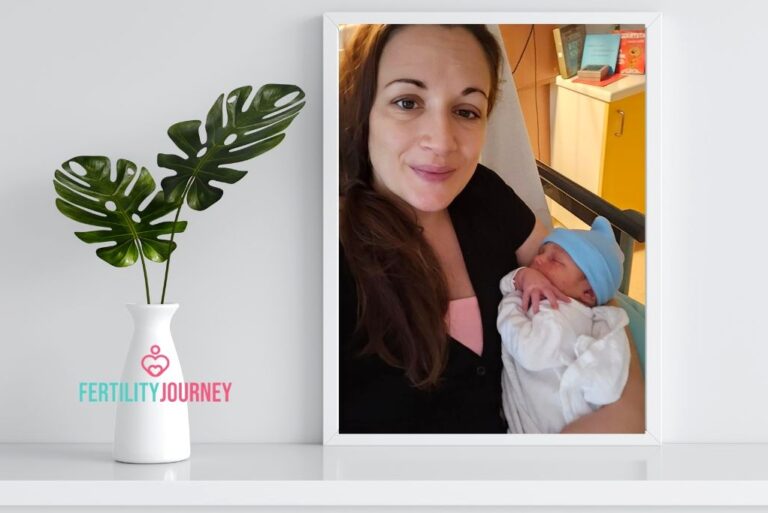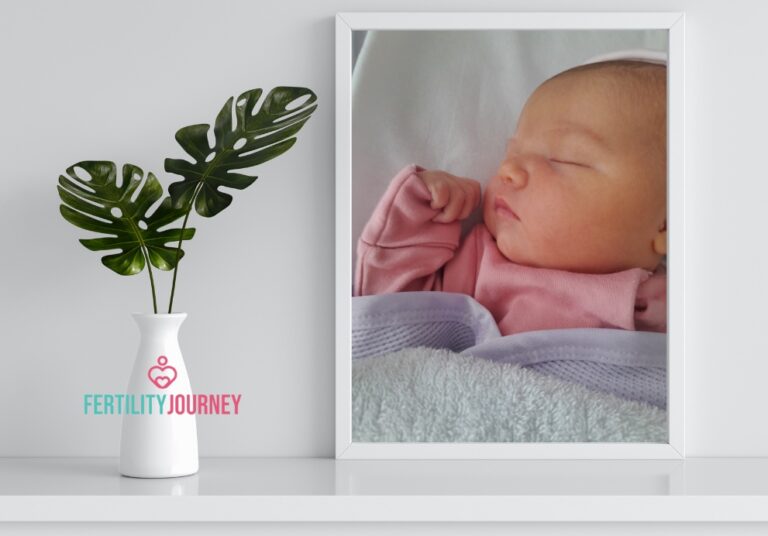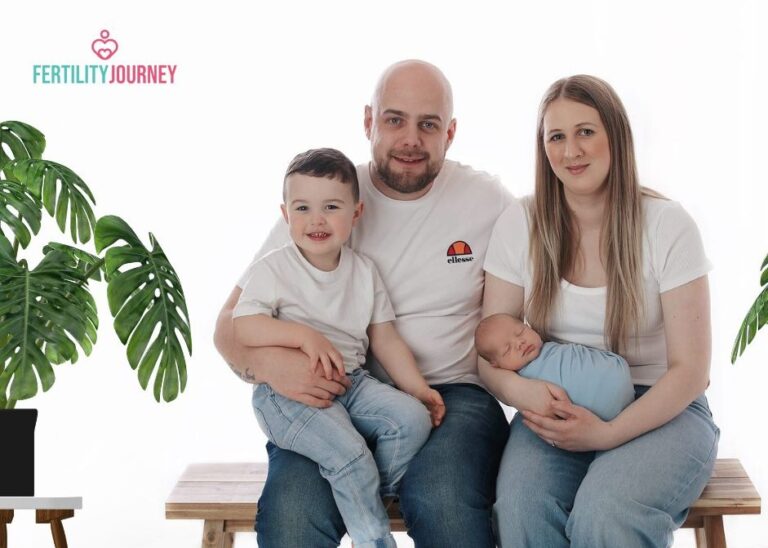The Dexeus Mujer team bring us news of their Fertility journey patients.
We have all heard about assisted reproduction treatments but how is each case addressed? Which are the key things that facilitate success? The Dexeus Mujer team explain how they work in their centre and which measures they put in place in order that Sarah and Joe can fulfil their dream.
Wednesday, May 15th, 2:55 pm. Sarah and Joe are connected by video conference, waiting for their interview with Dr. Iñaki González to start. They flew to Barcelona at the beginning of April to start their egg donation treatment, and today they will know the results of the medical tests they performed. This is their second appointment, but this time it will be “virtual” and from home. The International Department managed the video conference process, which is an option offered by Dexeus Mujer to all their foreign patients.
A little more than a month had passed since the last visit and although it seems a long time, it was necessary. Joe and Sarah had previously had an unsuccessful egg donation treatment in another centre and consequently the Dexeus Mujer team decided that a complete fertility evaluation was required. The purpose of this evaluation was to obtain all the information necessary to ensure the maximum chances of success in their next try.
Sarah is more than 40 years old and she has been diagnosed with a low ovarian reserve, which is very common in patients of her age. Dr. Iñaki González indicated the need for her to perform a complete gynaecological review (including pap smear and transvaginal ultrasound), a blood analysis, and a serology. The latter allows us to discard the presence of human immunodeficiency virus (HIV) and other infections.
“These are tests we give to all women before starting an assisted reproduction treatment, although they will not use their own eggs, as in Sarah’s case. We perform them to verify that there are no fibroids or uterine malformation, a sexually transmitted infection or other pathologies that may hinder the development of a pregnancy,” explains Dr. González.
The analysis is performed to understand the patient’s general health and some hormonal values which allow us to evaluate their ovarian reserve. When a patient is forty plus as in Sarah’s case, they also have a mammogram to rule out the existence of any cancerous process before the start of the assisted reproduction treatment. It is a preventive measure that falls within our protocols,” explains Dr. Gonzalez.
As for Joe, the team undertook a semen analysis, serology and karyotype, which is the usual protocol in these cases.
Why Dexeus Mujer?
At Dexeus Mujer we have an Andrology Laboratory and a specific Unit of Sexual and Reproductive Health dedicated to the male which works in collaboration with our Reproductive Medicine Service team so that all necessary tests can be performed in our centre.
“In the case of Joe, due to the bad embryo evolution of the previous in vitro fertilisation they had done, we believed that it was desirable to undertake also a study of DNA fragmentation, applying the Sperm Comet test, which is one of the most advanced techniques,” explains Dr. Alvaro Vives, who directs the unit at Dexeus Mujer.
“This is a common problem that can cause a decline in fertility and negatively effect embryo quality. As they had a previous failed IVF attempt, it was important to have this information, in order to assess the chances of success of a second attempt,” adds Dr. Vives.
Once Sarah and Joe’s test results were ready, Dr. Vives and Dr. Gonzalez met to make an assessment, which was very positive: they were both in good health and although Joe’s Sperm Comet test was not at an optimum level it would not stop egg fertilisation by applying an ICSI procedure (a technique that allows you to directly introduce the sperm into the egg using a micro injection), since the problem of fragmentation could be resolved by applying a technique of sperm selection called Chip Fertile. This technique allows you to choose the spermatozoa with a better morphology and lower sperm DNA fragmentation.
In the case of Sarah, the diagnosis of low ovarian reserve was confirmed, so that, given her age, the egg donation treatment was the right choice.
“Sarah is in perfect health, so there is nothing to prevent an egg donation treatment”, said Dr. González in the video conference interview.
“I will contact the team of biologists to start looking for the donor. They’ll call you as soon as they have the candidate and then she can start her treatment, I’ll talk to you again in order to show you the following step”.
Very good news for our couple from Brighton!
In our centre we have a specific Oocytes and Embryos Donation programme who are responsible for the assignment (the “matching”, as the specialists call it). As Egg Donation was the suggested treatment for our couple, Dr Elisabet Clua, who runs this Programme at Dexeus Mujer, had a consultation with them in April too. She indicated the need for Joe to take the qCarrier test.
This test is used to detect if you are a healthy carrier of a mutation that could lead to inherited diseases that may go unnoticed since they are only transmitted to the offspring when both parents have the same mutation. We can all be carriers for some of them. In our centre the qCarrier test is undertaken by all egg donors to ensure that any future babies do not suffer from one of these diseases. In this case it was necessary to compare Joe’s results with that of the assigned donor.
Egg donation is anonymous and confidential in Spain and although the Spanish law does not establish a maximum number of donations, it mandates a maximum number of 6 biological children born in Spain per donor. In order to regulate this past legislation sought to create a donor registry, in order to have a control of this activity to avoid problems of inbreeding.
The registry is now in its second year and our centre was one of the first in Spain to accede to this control system, precisely to avoid such problems.
At the time of writing this article Dr. Clua’s team has already found a donor who shares Sarah’s physical traits: hair, skin and eye colour, similar size and weight and compatible blood group and Rh. These are characteristics that she must meet in order for Sarah’s future baby, in case of pregnancy, to have a certain resemblance. Sarah and Joe have already been informed and have given their OK to the donor.
From now on, Sarah will begin to take contraceptives to synchronize her menstrual cycle with the donor, and subsequently oestrogens, to prepare her uterus for the future pregnancy. Once it is confirmed that the donor is genetically compatible with Joe, she will start the ovarian stimulation treatment.
Our centre performs regular checks on the donor to monitor this process. When the oocytes of the donor reach an optimal maturation, the retrieval will be performed, and on the same day the oocytes will be inseminated with Joe’s sperm, preserved in our Cryopreservation Laboratory. The team of
biologists will inform Sarah and Joe about the probable week of the oocytes retrieval (you can never predict the exact day in advance).
Normally, the embryos take 5 days to reach an blastocyst state of maturation (which is called the blastocyst stage). Among those who have reached the stage of blastocyst, we will select one and freeze the others, in case we need them for future attempts.
If everything is fine, it is likely that in about two months Joe and Sarah will be back again in Barcelona to carry out the embryo transfer. We hope it will be very soon!
Dexeus have kindly provided Fertility Road with a free egg donation cycle for Sarah & Joe.
